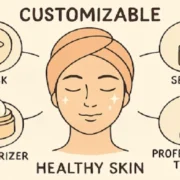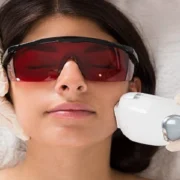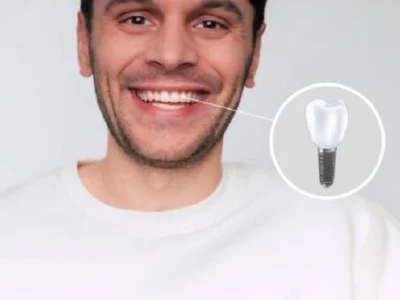In recent years, IV therapy has gained popularity not just for physical wellness but also for its possible impact on mental health and mood. While it’s not a replacement for therapy, medication, or lifestyle changes, IV therapy can offer a supplemental approach to supporting overall emotional well-being. But how exactly does delivering vitamins and nutrients directly into your bloodstream affect your mind and mood?
Let’s explore what science says, how it works, and who might benefit.
What is IV Therapy?
Intravenous (IV) therapy involves administering vitamins, minerals, fluids, and other nutrients to the body. This method allows for nearly 100% absorption of the nutrients, bypassing the digestive system entirely. Commonly included nutrients in mental health-focused IV drips are B vitamins, magnesium, vitamin C, amino acids, and sometimes NAD+ (nicotinamide adenine dinucleotide).
Unlike oral supplements, IV Drip North Babylon delivers an immediate boost, making it particularly appealing for individuals looking for quick relief from fatigue, stress, or low mood.
The Connection Between Nutrients and Mental Health
Mental health is shaped by emotional, biological, and environmental influences, making it a deeply complex aspect of overall well-being. That said, a growing body of research supports the role of nutrition in brain function and mood regulation.
Here are some nutrients commonly used in IV therapy and how they may support mental health:
- B Vitamins (especially B12 and B6): These are crucial for neurotransmitter function. Low levels of B12, in particular, have been linked to depression, brain fog, and fatigue. B6 helps produce serotonin and dopamine, both essential for mood regulation.
- Magnesium: This is known for calming the nervous system. Magnesium deficiency has been associated with anxiety, irritability, and even symptoms of depression.
- Vitamin C: Known for its immune-boosting properties, vitamin C also acts as an antioxidant, protecting the brain from oxidative stress, which can worsen mental health conditions.
- Amino Acids: These are the building blocks of neurotransmitters. For example, tryptophan is a precursor to serotonin, and tyrosine supports dopamine production.
- NAD+: A coenzyme found in all living cells, NAD+ supports cellular energy production and has been studied for its potential to lessen symptoms of anxiety, depression, and brain fog.
Can IV Therapy Actually Improve Mood?
While IV fluids for dehydration aren’t a cure-all, many patients report noticeable improvements in mood, energy, and mental clarity after treatments, especially when they were previously nutrient deficient or dealing with burnout.
Here are some possible ways IV therapy may improve mental wellness:
- Energy Boost: Chronic fatigue can take a toll on mental health. IV drips rich in B vitamins and NAD+ may help increase energy levels, which in turn can support motivation and emotional resilience.
- Stress Reduction: Magnesium is well known for its ability to relax muscles and soothe the nervous system. Some folks find that magnesium-infused infusions help them manage stress better.
- Mental Clarity: “Brain fog” is a common complaint among people dealing with anxiety, depression, and high-stress levels. A combination of vitamins and hydration may help clear the mind and improve focus.
- Improved Sleep: Poor sleep can have a significant impact on mental health. Some IV blends include nutrients that help regulate sleep patterns, such as magnesium and B-complex vitamins.
- Support During Recovery: For individuals recovering from illness, addiction, or trauma, IV therapy can serve as one part of a broader wellness plan to replenish nutrients and rebuild strength, physically and mentally.
Who Might Benefit?
While almost anyone can enjoy the general wellness boost IV therapy offers, certain individuals might especially benefit when it comes to mood support:
- People experiencing chronic stress or burnout
- Those recovering from illness or surgery
- Individuals with nutrient absorption issues (such as those with digestive disorders)
- People experiencing seasonal affective disorder (SAD)
- Older adults at risk for vitamin deficiencies, particularly B12
- Those in addiction recovery, where NAD+ and other nutrients can help support neurological repair
However, it’s important to note that IV therapy should never replace conventional treatment for mental health conditions. It’s best used as part of a comprehensive plan that includes therapy, medication (if prescribed), proper sleep, exercise, and a healthy diet.
What to Expect from a Mood-Boosting IV Session
A typical session is delivered by a licensed medical expert and lasts less than an hour. While you relax, a specially made mix of nutrients and fluids runs into your bloodstream. There is some variation in how people feel after a lesson, but many say they feel revitalized, energized, or mentally clearer.
Targeted “Mood Support” or “Stress Relief” drips are available from some providers, while others make unique formulations based on your health goals and lab work.
Additionally, it is important to note that IV therapy may have stronger benefits if it is done regularly or when it is combined with other healthy lifestyle habits.
The Bottom Line
IV therapy isn’t a magic bullet for mental health, but it can be a part of a whole wellness regimen. IV treatment may help boost energy, lower stress, and support a more balanced mood by promptly replacing important nutrients that affect how the brain works.
If you’re feeling low on energy, stressed out, or having mood swings, and your doctor has ruled out more serious problems, you might want to think about IV treatment as a way to improve your health.
As usual, talk to a doctor before starting any new treatment, especially if you already have a mental health problem. With the correct help, IV therapy can help your mind and body work together in a balanced way.
Caring Touch Home Health Makes a Difference in Patients’ Lives










Comments